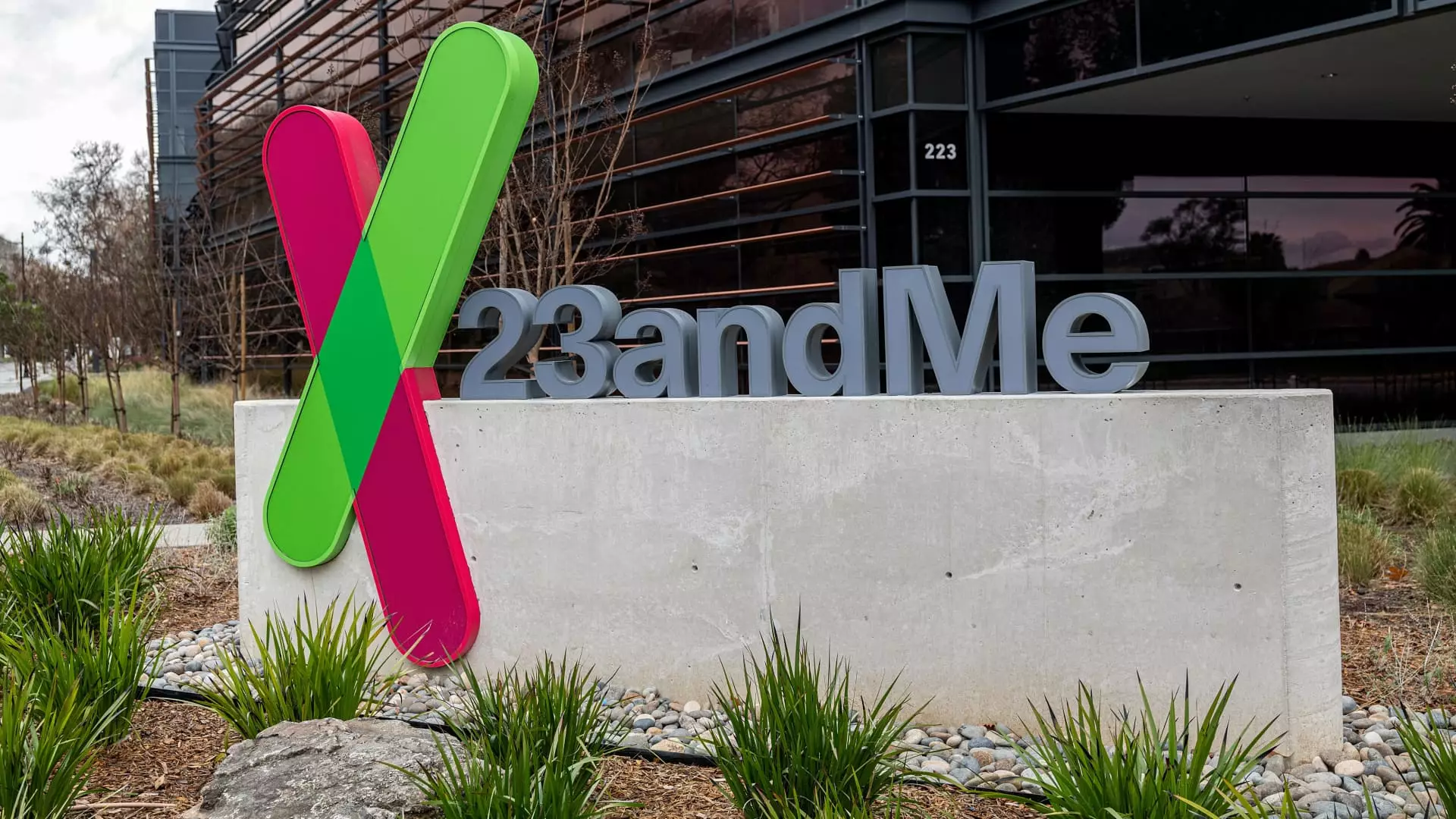The recent news surrounding 23andMe has sent shockwaves through the biotech and consumer healthcare sectors. The company, renowned for its at-home DNA testing kits, has opted for Chapter 11 bankruptcy protection, a development that raises serious concerns not only about its financial stability, but also about the privacy and security of the millions of consumers who entrusted their genetic data to the firm. In a market where genetic data is increasingly treated as a valuable commodity, the implications of this bankruptcy extend well beyond the company’s balance sheet.
The Risk of Data Misuse
23andMe’s predicament comes on the heels of a significant data breach in October 2023, where hackers accessed the information of nearly 7 million customers. This incident shines a light on a critical issue: the inherent risks associated with genetic data. Each strand of DNA is not just unique but also serves as a blueprint for an individual’s biological profile. In the wrong hands, this data could facilitate identity theft, insurance fraud, or worse. The sensitivity of genetic information cannot be overstated; it transcends mere personal data and touches the core of an individual’s identity. As California Attorney General Rob Bonta pointedly remarked, the potential for misuse of genetic data is alarming, especially amidst the company’s financial turmoil.
The Commitment to Privacy Amid Uncertainty
Amidst the chaos, 23andMe has made public declarations to assure customers about their commitment to data privacy. The company has stated that it will continue to uphold the standards of how it stores and manages customer data throughout the bankruptcy process. However, many consumers remain skeptical. Can a company in financial distress truly guarantee the safety of its genetic database? Experts warn against complacency. As the situation unfolds, consumers are advised to take proactive measures regarding their genetic data, raising the question of whether such precautions were adequately communicated prior to the breach.
What Consumers Can Do: Actively Protecting Genetic Information
The conversation surrounding 23andMe’s bankruptcy underscores the necessity for consumers to take immediate action concerning their genetic profiles. Following guidelines suggested by security experts, individuals using 23andMe should consider revoking access, deleting accounts, and removing any genetic data stored with the company. While the process may seem cumbersome, the importance of safeguarding one’s digital footprint cannot be overstated. Advocates suggest consumers take a multi-faceted approach—monitoring digital activities, enrolling in credit protection services, and remaining vigilant, particularly when engaging with personal data services.
A Call for Transparency and Consumer Rights
Interestingly, the bankruptcy of 23andMe raises broader issues pertaining to transparency in the biotech industry. Consumers should be informed of not just how their data is managed, but also the potential risks that come with engaging in DNA testing services. The ethical considerations associated with genetic data management should be at the forefront of the conversation—a conversation that needs to become more public as interest in genetic testing grows. As the industry evolves, so must the regulations and safeguards protecting consumers.
The Future of Genetic Testing Companies
As 23andMe faces an uncertain future, one must ponder the ramifications this will have on the entire genetic testing landscape. Will we see a shift in how companies approach data privacy and consumer transparency? Will the trust deficit created by 23andMe’s experience lead consumers to avoid genetic testing altogether? With the industry’s growth trajectory, the need for clarity and ethical data practices has never been more pressing. The landscape of genetic testing is at a crossroads, balancing innovation with consumer protection—and the outcome is too significant to ignore.
In navigating this complex terrain, one thing is certain: consumers must be empowered and informed about their choices. The lessons drawn from 23andMe’s struggle could provide a wake-up call for both consumers and companies about the critical importance of data security and ethical responsibility in the digital age.

